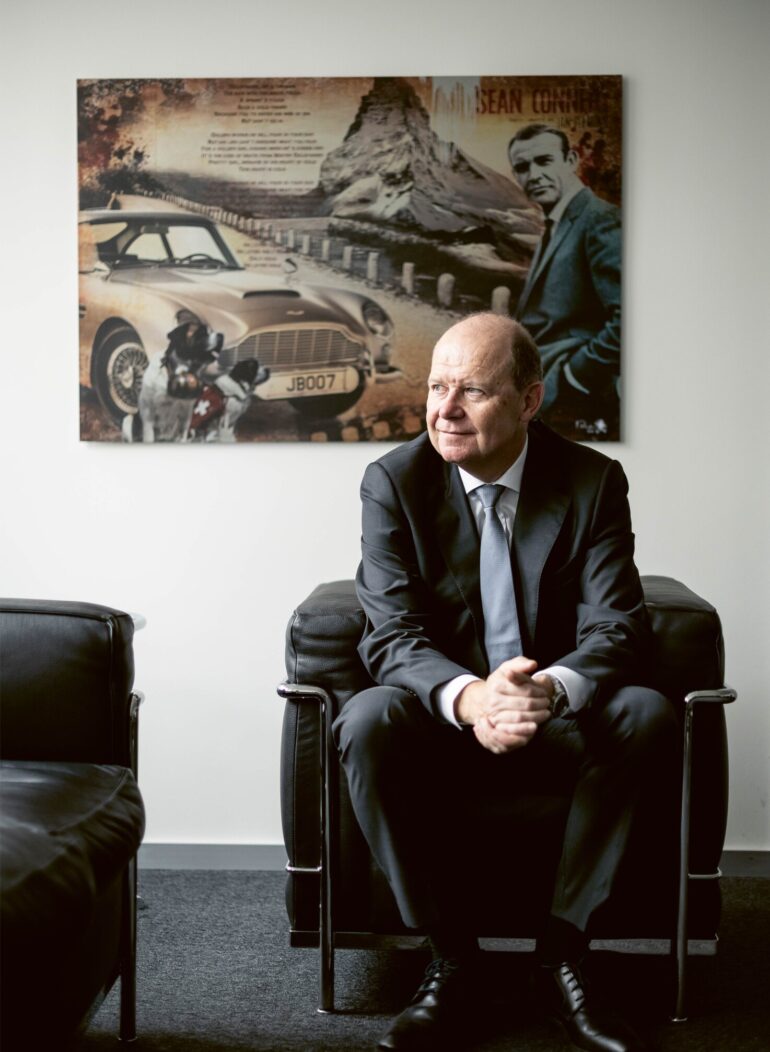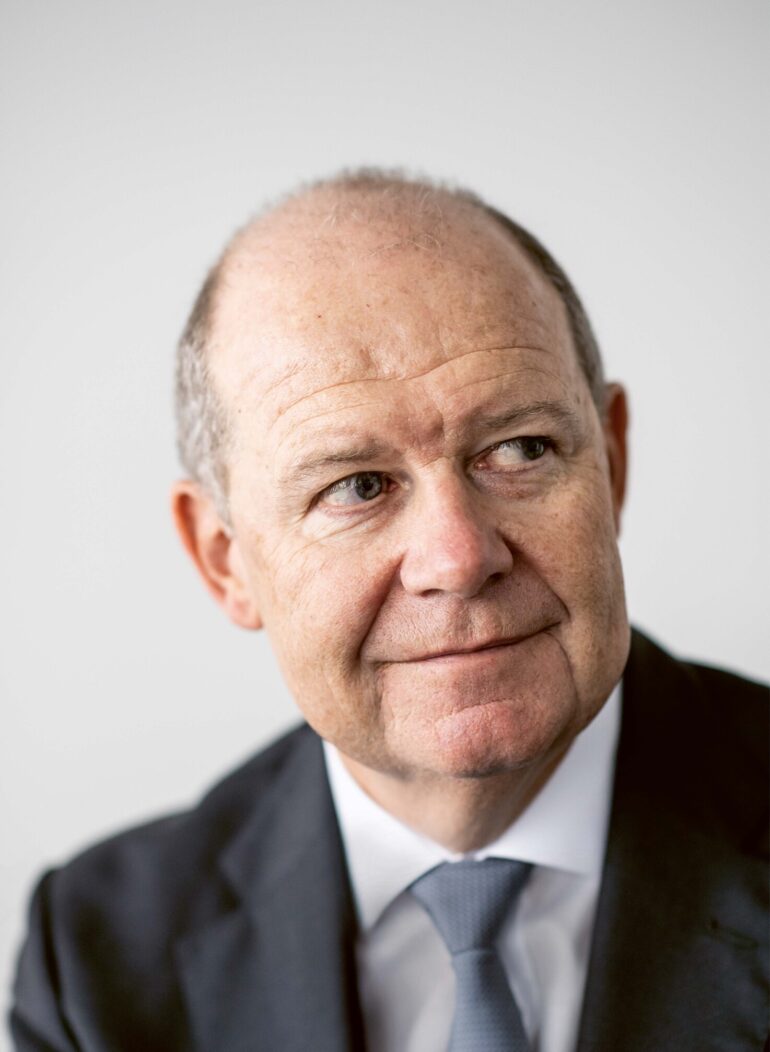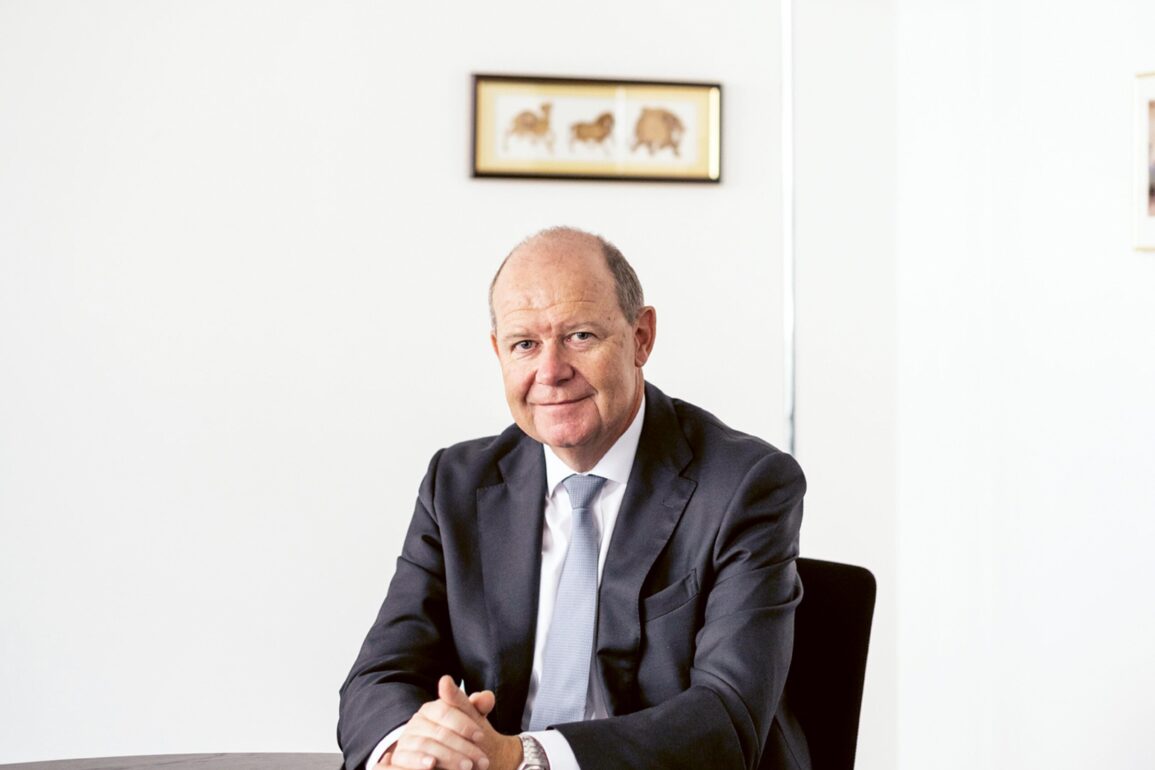Stepping into the world of work poses challenges for young people – but if they don’t manage to make the leap, it can have a long-term impact on their life. Valentin Vogt, President of the Swiss Employers Confederation, is hoping to combat youth unemployment through Check Your Chance.
The Philanthropist: Why have you got involved with the issue of youth unemployment specifically?
Valentin Vogt: Switzerland’s labour market is home to various pockets of untapped potential: older people, women and young people. It’s a shame that we’re not making full use of them, given that there’s both an economic and an emotional aspect to consider.
And this is particularly true for young people?
If an older person doesn’t manage to return to work, that’s not ideal. But for a young person, it’s catastrophic. If they cannot enter the world of work aged 20, they will generally spend their entire working life on the fringes of existence, unable even to build up a pension. As a result, this often sets them on a path that inevitably leads towards state benefits.
And that’s why you’re working to combat youth unemployment.
Yes. It’s really impressive how little it takes, in many cases, to bring young people back onto the straight and narrow.
In terms of what you do with Check Your Chance, how did you come up with the initiative?
There was already an array of local associations and charities working to combat youth unemployment. In 2008/9, when youth unemployment was last at a very high level in Switzerland, Credit Suisse launched an initiative that offered direct support to all these associations and charities. However, it quickly became clear that there was no umbrella organisation. As a result, Check Your Chance was designed to be the first national umbrella organisation to combat youth unemployment. In 2014, Credit Suisse asked me if I would like to be its president, and I said ‘yes’ without a moment’s hesitation. The Check Your Chance charity has been independent since 2015, but it still receives financial support from Credit Suisse, and we’re enormously grateful for that, of course.

Check Your Chance functions as the umbrella organisation, and the individual associations continue to act independently. Can you give us an example of how they work?
Their strengths lie in the different services they offer. Here’s one example: the charity LIFT helps young people work in a business one afternoon a week during their final years at school. In general, these are young people who might have a harder time finding an apprenticeship. This programme gives companies offering apprenticeships the option of getting to know the person better before potentially concluding an apprenticeship contract with them.
So, what does Check Your Chance do?
We do everything that individual associations wouldn’t be able to, but that nevertheless needs to be done to prevent youth unemployment and assist with the integration of unemployed young people. For example, we’ve concluded a public-private partnership agreement with SECO. For every franc of private funds that we and our members collect, we receive an additional 50 cents from SECO. As an umbrella association, however, we do not operate our own support services.
How is Check Your Chance funded?
We collect money for the umbrella association via donations, charities and an annual donor event, while the various associations and foundations run their own fundraising efforts. We need to fund 1.4 jobs within the umbrella association, but our clear objective is to generate more money so we can pass it on to our affiliated organisations.
How many organisations are affiliated with the umbrella organisation?
Eight. But we’re not a closed shop, as it were. Other charitable organisations that identify with our ideas and are willing to work with us are welcome to join us, and we’d be happy to accept them, following an appropriate assessment.
You write that 81 percent of programme-leavers were successful in 2019. How do you measure success?
We regard it as a success if a graduate has not registered for unemployment benefit one year after completing the programme.
This year, young people are facing a unique challenge due to the coronavirus crisis…
… and at the start of the crisis, we were worried that the apprenticeship market might collapse. That hasn’t happened, and in fact, this year, companies have concluded just as many apprenticeship contracts as they did last year.
So does that mean coronavirus hasn’t had any impact whatsoever?
No, it has. During lockdown, contact between people looking for apprenticeships and companies offering them was very limited. But things have now returned to normal, to some extent. We’ll see how things develop, but I don’t think we’ve quite reached the end of the tunnel yet.
That doesn’t exactly sound optimistic.
As the President of the Swiss Employers Confederation, I have both direct and indirect insight into many of these companies. Lots of companies are concerned to see that turnover is substantially lower than in the previous year, 30 to 40 percent for some, and in some cases even more. No company can survive a drop of this scale without restructuring. Companies will have to respond, otherwise their very survival will be at risk. In the past, we’ve seen that short-time working and unemployment benefit can help us get through a crisis like this. In Switzerland, we have overarching conditions that enable companies to take steps without putting the livelihoods of the employees in question at risk.
What does that mean for young people specifically?
Normally, young people are the first to feel a crisis like this, but they’re also the first to benefit when the economy bounces back. The opposite is true for older employees: they’re the last to be affected by the consequences of a crisis, but they’re also the last to benefit from things picking up.
How have you responded to the crisis so you can help young people?
We’d been working on an emergency plan even before coronavirus hit. We’d held discussions with SECO, talking about what we would do if youth unemployment were to start skyrocketing – and that’s exactly what happened with coronavirus. Now, Check Your Chance’s members are receiving additional funding from SECO, limited to a period of 18 months. These supplementary funds enable us to help and assist 3,800 more young people. At present, we are primarily focusing on the transition from school to the labour market. In addition, at SECO, we’re working to ensure that employers can hire their apprenticeship graduates and still receive compensation for short-time working, despite short-time working regulations. After all, employers making use of the short-time working programme are not allowed to hire new employees, but for young people, it is now more important than ever that they can step into a professional role after graduation, without being at risk of becoming unemployed.
ʽYoung people are our future, in every respectʼ
Valentin Vogt, chair of the board of the umbrella organisation Check Your Chance

Coronavirus or no coronavirus, how can young people access your services?
Our associations have regional bases and are well-known in their local areas. In addition, there is a national helpline: GO4JOB.
What does this look like in practice?
The helpline works by triaging callers, aiming to point them in the right direction. This could be a Check Your Chance association or another body, but the important thing is that young people get help quickly and easily.
Has this work changed?
It’s more demanding, and cases have become more complex.
How many unemployed young people are we talking about?
The statistics from the RAV, or regional unemployment centres, measure unemployment. In July 2020, 17,895 young people were registered with the RAV. By contrast, whether or not people are earning money is measured via telephone interviews. In this instance, for example, we’re talking about people who live with their parents, don’t have a job, and aren’t registered with the RAV. In normal times, we assume that there are 50,000 or so young people who don’t have an income. At present, this figure is around 70,000, including about 18,000 unemployed young people.
Young men are affected by unemployment more than women. Do you know why that’s the case?
This is a major challenge. Thirty years ago, the majority of people taking their ‘Matura’ baccalaureates, and the majority of the very good students, were male. This situation has changed considerably, and one reason could be that schools are strongly shaped by a female value system. This is connected to role models: more than 80 percent of teachers in lower and middle schools are female. In this case, we need to see better gender distribution within the teaching profession. After all, young men simply work in a different way, with their educational and professional development tending to occur a little later.
Do young people have a particularly hard time on the labour market?
I don’t think so. Young people do have less experience than older employees. That said, they have different requirements and contribute different ideas, too, even just in terms of digitisation. Check Your Chance helps young people find their way into the labour market.
What does it mean for our society if young people aren’t in work?
Young people are our future, in every respect. If we don’t make the most of their potential, it’s not just young people who have missed out on opportunities, but society, too.
Why is this so important for society?
Soon, the baby boomers will retire. This generation saw well over 100,000 births a year, and now generations with 70,000 births a year are entering the labour market. That means that our society and economy need young people: over the next few years, there will be a shortfall of around 500,000 workers in the labour market, if immigration does not increase.
What do you hope Check Your Chance will achieve?
I hope young people will come to appreciate the value of work more. Lots of young people see work as being primarily a way to earn money so they can live independently. But work is much more than that: work provides structure, work offers satisfaction and motivation, work facilitates 60 percent of relationships between men and women. A life without work would be very boring, and I would like every young person to be able to recognise that. Plus, I would like every young person to have a great start to their career – and that’s what we want to do with Check Your Chance.
Erfahren Sie mehr über Check your Chance auf stiftungschweiz.ch


